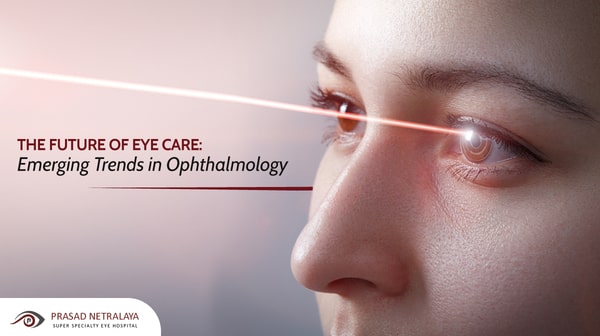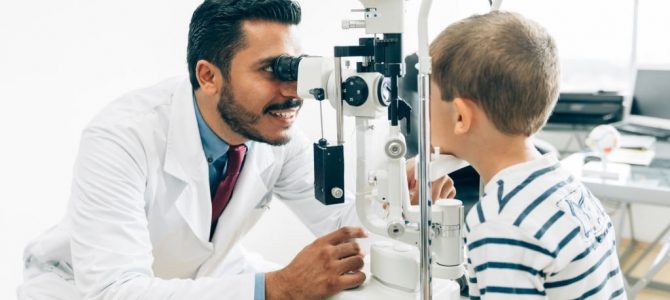Pediatrics in Andalusia: Compassionate Look After Growing Family Members
Pediatrics in Andalusia: Compassionate Look After Growing Family Members
Blog Article
Is Refractive Surgery Right for You? Aspects to Take Into Consideration for Better Eyecare
In the realm of eye treatment, the choice to undergo refractive surgical procedure is a weighty one that requires thoughtful factor to consider. From the details of one's eye wellness to the details of daily practices and personal assumptions, each aspect holds significance in the wider landscape of refractive surgical procedure candidateship.
Eye Wellness Evaluation
When considering refractive surgery, a comprehensive eye health and wellness assessment is important to examine the viability of the procedure for each individual. eye center andalusia. This examination involves a series of exams and tests performed by an eye care expert to determine the general health of the eyes, the presence of any kind of hidden problems, and the stability of the refractive mistake
Throughout the assessment, various aspects are considered, such as the client's clinical background, present eye prescription, corneal thickness, student size, and tear film top quality. These assessments help to identify any kind of contraindications to refractive surgery, such as corneal irregularities, cataracts, or without treatment eye infections. Additionally, the analysis aids to manage patient assumptions regarding the possible results of the surgical treatment based upon their unique eye features.
Eventually, the eye health and wellness evaluation is vital in ensuring the safety and performance of refractive surgical procedure, as it supplies valuable insights into the individual's eye wellness status and helps identify one of the most suitable treatment alternatives for accomplishing ideal visual end results. (neurologist andalusia)
Way Of Living Assessment
A comprehensive way of living evaluation is essential in determining the suitability of refractive surgery for an individual's visual correction requirements. Way of life aspects such as profession, hobbies, and day-to-day tasks play an important role in the decision-making process concerning refractive surgical procedure.
Moreover, lifestyle habits such as sporting activities engagement, outside tasks, or also skin care regimens can affect the healing procedure and total success of refractive surgical treatment. By conducting a thorough way of life assessment, eye treatment specialists can customize their recommendations and therapy plans to meet the special requirements of each patient, ultimately leading to boosted aesthetic end results and complete satisfaction.
Expectation Placement

Setting practical assumptions entails comprehensive pre-operative conversations in between the individual and the ophthalmologist. The specialist must transparently interact the prospective threats, benefits, and restrictions of the procedure (eye center andalusia). Individuals require to comprehend that while numerous people achieve 20/20 vision or better complying with refractive surgical treatment, some might still require glasses for sure tasks like reading or driving at night. Managing these expectations assists prevent dissatisfaction and dissatisfaction post-surgery, bring about an extra favorable general experience for the patient.
Threat Evaluation

Factors that may raise the threat of issues consist of age, particular medical problems like autoimmune diseases, unstable vision prescription, thin corneas, and impractical patient expectations. In addition, choosing a skilled and experienced specialist, adhering to pre and post-operative care directions faithfully, and divulging any kind of relevant case history can assist minimize dangers.
To lessen the likelihood of complications, ophthalmologists conduct extensive pre-operative evaluations to identify any contraindications to surgical procedure. They also go over the prospective risks and benefits with people during the examination process. By participating in open interaction and shared decision-making, both the individual and the eye doctor can work with each other to identify if refractive surgical procedure is the best option based upon private threat profiles and desired results.
Assessment Value
Considering the crucial role of informed decision-making in assessing threats and possible difficulties in refractive surgery, the assessment procedure holds considerable importance in assisting clients in the direction of optimal end results. During the appointment, the ophthalmologist reviews the individual's eye health, refractive mistakes, and total suitability for surgery. This first evaluation is crucial in identifying the most appropriate procedure for every person, taking into consideration aspects useful source such as corneal density, student dimension, and existing eye conditions.
Moreover, the examination acts as an opportunity for patients to review their expectations, worries, and any kind of concerns they might have pertaining to the surgical treatment. Clear interaction in between the specialist and the client is essential to guarantee reasonable expectations and a thorough understanding of the potential threats and advantages entailed.
In addition, the consultation allows the surgeon to informative post explain the various surgical options offered, their particular outcomes, and the post-operative treatment needed. This comprehensive conversation equips people to make educated choices concerning their eye care, bring about much better contentment and outcomes post-surgery.
Verdict
Finally, people thinking about refractive surgical procedure ought to undergo a detailed eye wellness analysis, evaluate their way of life habits, straighten their expectations with prospective results, examine the associated dangers, and focus on consultations with eye treatment professionals. These aspects play a critical role in figuring out the suitability of refractive surgical procedure for each and every person, guaranteeing optimum outcomes and satisfaction with navigate to this website the procedure.
Patients thinking about refractive surgical procedure usually have high expectations pertaining to the outcomes, expecting excellent vision without the demand for glasses or get in touch with lenses. While refractive surgical treatment can greatly enhance vision and lower dependency on aesthetic aids, it is important for people to comprehend that outcomes might differ based on specific factors such as the degree of refractive mistake, corneal density, and general eye health.
By involving in open interaction and shared decision-making, both the patient and the eye doctor can function together to establish if refractive surgical procedure is the ideal choice based on private threat profiles and wanted end results.
Taking into consideration the important role of notified decision-making in assessing dangers and prospective problems in refractive surgical procedure, the assessment process holds significant value in directing individuals towards ideal outcomes. During the assessment, the ophthalmologist evaluates the client's eye health, refractive mistakes, and total viability for surgical treatment.
Report this page